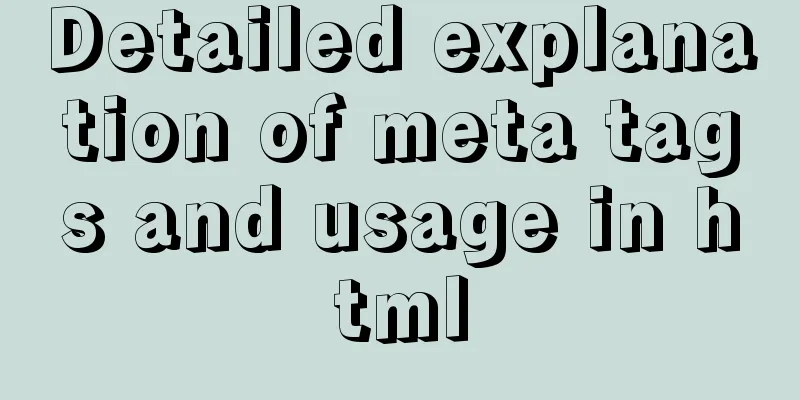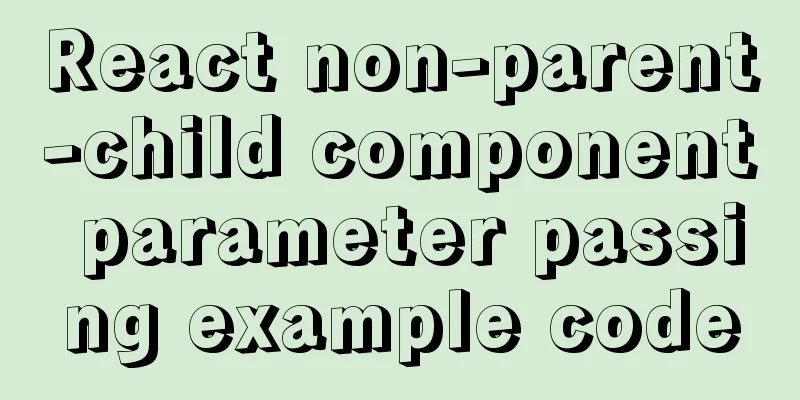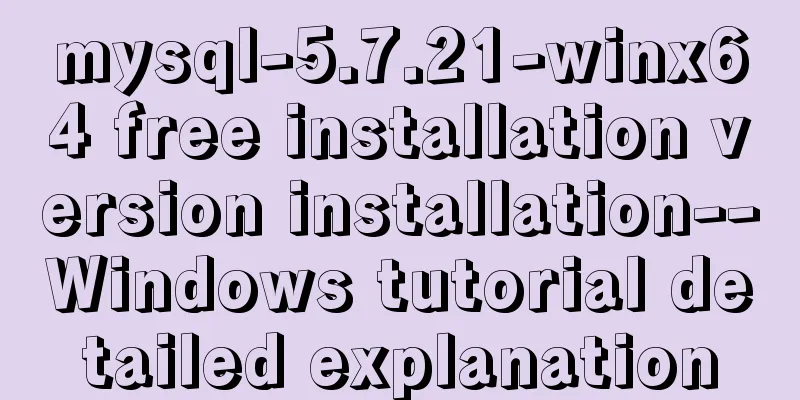Detailed explanation of meta tags and usage in html

|
I won’t waste any more time talking nonsense, let’s get started with today’s topic. Meta tags in Html 1. Meta tag meaning The <meta> element provides meta-information about the page, such as a description and keywords for search engines and update frequency. The <meta> tag is placed in the head of the document and contains no content. The attributes of the <meta> tag define name/value pairs associated with the document. 2. Common attributes in meta 1. charset Description: Specifies the character encoding of HTML documents. Usage: 2. Viewport Description: This is the visible area of the user's web page. As we all know, the screens of mobile devices are generally much smaller than those of PCs. Webkit browsers will map a larger "virtual" window to the screen of the mobile device. The default virtual window is 980 pixels wide (the standard width of most websites at present), and then it is scaled according to a certain ratio (3:1 or 2:1). That is to say, when we load a normal web page, webkit will first load the web page according to the browser standard of 980 pixels, and then reduce it to a width of 490 pixels. Note that this shrinking is a global shrinking, that is, all elements on the page will shrink. usage: <meta id="viewport" name="viewport" content="width=device-width; initial-scale=1.0; maximum-scale=1; user-scalable=no;"> (1) width Width controls the size of the viewport. Generally, it is set to device-width for adaptive viewing. (2) initial-scale initial-scale: The initial zoom ratio, that is, the zoom ratio when the page is loaded for the first time. (3) Maximum-scale maximum-scale Maximum zoom. This is the maximum zoom level allowed. This is also a floating point value that indicates the maximum multiplier of the page size compared to the screen size. (4) minimum-scale minimum-scale: The minimum scale to which the user is allowed to zoom. Similar to maximum-scale in usage. (5) user-scalable user-scalable User-adjustable scaling. That is, whether the user can change the page zoom level. If set to yes, the user is allowed to change it, otherwise no. 3. keywords Description: A list of keywords provided to search engines. Each keyword is separated by an English comma “,”. Specify keywords that the search engine uses to improve the quality of your searches. Usage: <Meta name="Keywords" Content="Keyword 1, Keyword 2, Keyword 3, Keyword 4, ..."> 4. description Description: Description is used to tell search engines the main content of your website. Usage 5. format-detection Note: format-detection is used to detect some formats in HTML. Usage: The format-detection attribute of meta mainly has the following settings:
meta name="format-detection" content="telephone=no"
meta name="format-detection" content="email=no"
meta name="format-detection" content="adress=no" You can also write: (1) Telephone You clearly wrote a string of numbers without adding a link style, but the iPhone will automatically add a link style to your text, and will automatically dial when you click on the number! How do I remove this dial-up link? Now it’s time for our meta to come into play. The code is as follows: telephone=no disables the conversion of numbers into dial-up links! (2) Email Tell the device not to recognize the email address and not to send automatically after clicking email=no is not allowed as an email address! (3) adress adress=noForbidden to jump to the map! 6. apple-touch-fullscreen Note: After adding to the home screen, it will be displayed in full screen. Usage: 7. apple-mobile-web-app-capable Description: The function is to delete the default Apple toolbar and menu bar. content has two values: "yes" and "no". When we need to display the toolbar and menu bar, we don't need to add this line of meta. It is displayed by default. Usage: 8. App-Config Description: Keep history and animation effects Usage: 9. msapplication-tap-highlight Description: Click without highlight (highlight) Usage: Summarize The above is a detailed introduction to the meta tags and usage in HTML. I hope it will be helpful to you. If you have any questions, please leave me a message and I will reply to you in time. I would also like to thank everyone for their support of the 123WORDPRESS.COM website! |
<<: Summary of precautions when writing EDM in HTML (general precautions for sending emails)
>>: Three ways to align div horizontal layout on both sides
Recommend
Solution to automatically submitting the form and jumping to other pages after pressing Enter on the web page
After pressing Enter on the webpage, the form is a...
MySQL 5.7.17 installation and configuration method graphic tutorial (Ubuntu 16.04)
Download the latest version of MySQL for Ubuntu L...
CentOS 8 custom directory installation nginx (tutorial details)
1. Install tools and libraries # PCRE is a Perl l...
JavaScript color viewer
This article example shares the specific code of ...
Automatically log out inactive users after login timeout in Linux
Method 1: Modify the .bashrc or .bash_profile fil...
Linux CentOS6.9 installation graphic tutorial under VMware
As a technical novice, I am recording the process...
Detailed explanation of several practical solutions for quickly deleting large amounts of data (tens of millions) in MySQL
The author recently encountered a performance bot...
Summary of frequently used commands for Linux file operations
0. New operation: mkdir abc #Create a new folder ...
Detailed explanation of js's event loop event queue in the browser
Table of contents Preface Understanding a stack a...
Introduction to encryption of grub boot program in Linux
Table of contents 1. What is grub encryption 2. g...
An article to understand the advanced features of K8S
Table of contents K8S Advanced Features Advanced ...
A brief analysis of controlled and uncontrolled components in React
Table of contents Uncontrolled components Control...
Implementation of docker-compose deployment of zk+kafka+storm cluster
Cluster Deployment Overview 172.22.12.20 172.22.1...
How to use an image button as a reset form button
When we make a form, we often set a submit button ...
MySQL 5.7.27 installation and configuration method graphic tutorial
The installation tutorial of MySQL 5.7.27 is reco...









